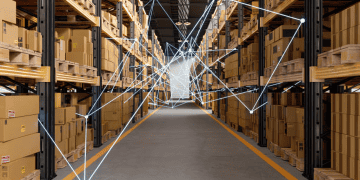A new study looks at how businesses alter their supply chains in response to climate policies, especially carbon taxes, and the unintentional issue of carbon leakage.
Carbon leakage happens when companies move their production to countries with weaker environmental rules, which can harm global efforts to reduce emissions.
The researchers analyzed information from the European Union’s emissions trading system and the upcoming carbon border adjustment mechanism. They categorized products as either ‘clean’ or ‘dirty’ based on how exposed they are to domestic or border carbon taxes. This classification was combined with data on French companies’ imports from 2000 to 2019. The results showed that during the 2010s, companies began importing more ‘dirty’ materials from non-EU countries, indicating a trend towards sourcing from places with looser environmental regulations.
To measure how carbon taxes and tariffs influence companies’ sourcing choices, the study used a specific model. Simulations based on the EU’s carbon tax showed a slight drop in emissions but also a rise in overall prices. However, when the carbon tariff was included, the model suggested that carbon leakage could be reversed, implying these measures might effectively prevent the movement of emissions-heavy production.
These findings point out the challenges of putting climate policies into practice and stress the need for comprehensive strategies that tackle issues like carbon leakage. As the EU moves forward with the carbon border adjustment mechanism, it’s important to understand how companies adjust their behaviors to create effective environmental regulations that cut emissions without causing other economic problems.
Stay on top of supply chain news with The Supply Chain Report. Enhance your international trade knowledge with free tools from ADAMftd.com.
#ClimatePolicy #SupplyChain #CarbonTax #CarbonLeakage #Sustainability #EnvironmentalRegulations #EUCarbonTax #CarbonBorderAdjustment #GlobalEmissions #ClimateChange #SustainableSourcing #GreenEconomy #CarbonTariff #ClimateAction #SupplyChainResilience















